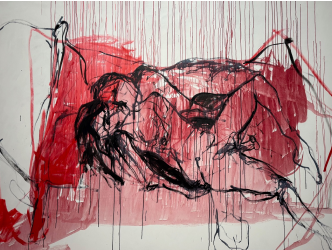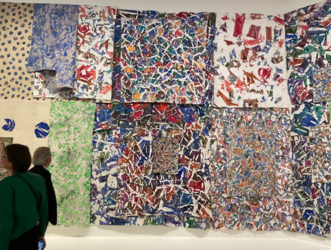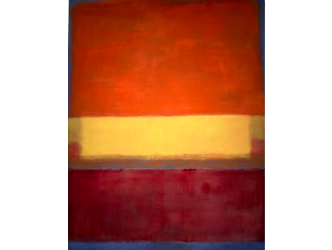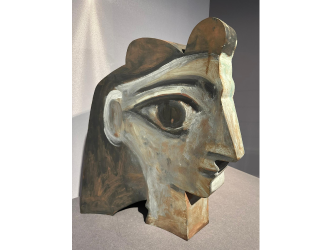Here’s a little gem of an exhibition, all delicacy and spirit.
Moma sculpture garden
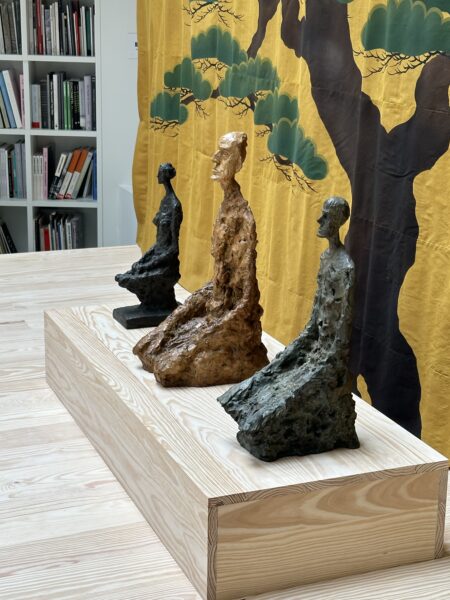
Alberto Giacometti and Hiroshi Sugimoto
The story starts like this. There was once, in 2013, a famous Japanese artist who spent most of his time living in New York and who was invited by the prestigious modern art museum in his city, Moma, to photograph the museum’s sculpture garden. His name was Hiroshi Sugimoto (born in 1949) and he believed in ghosts (see here the interview I did with him in December 2022 in Tokyo, in it he also speaks at length about his foundation) (see here a report about another exhibition at Institut Giacometti).
La Grande femme by Giacometti
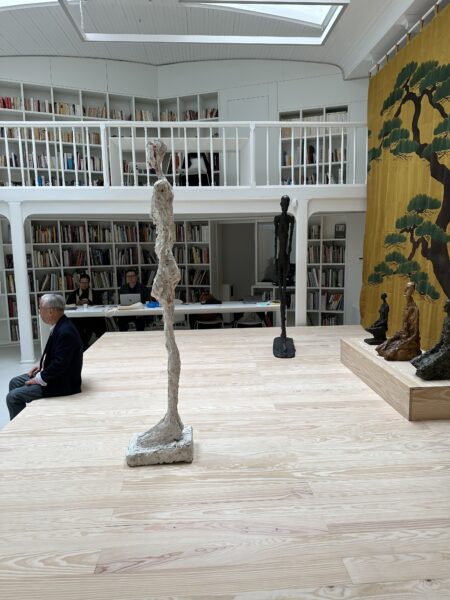
Alberto Giacometti
He began by immortalizing what he considered to be a masterpiece, a “Grande femme” by Alberto Giacometti. The breasts are the only part that points horizontally in this sculpture that is tall and elongated while producing a textured effect, marked by the sculptor’s fingerprints. The arms are held tight against the body. The feet are clenched.
Spirit of things
“She is so thin. And yet something so strong, so spiritual emanates from her,” Sugimoto says today. This is how the Japanese artist came up with the idea to create a series of photos dedicated to the artworks of Giacometti. Blurred, and featuring artworks that are thinner than in real life, they are the fruit of a particular technique that the photographer calls “double infinity focus”. The objective, which has been largely achieved, is not a real representation but rather to embody the spirit of things. Spirit being primarily understood in the spiritual sense.
Jean -Paul Sartre
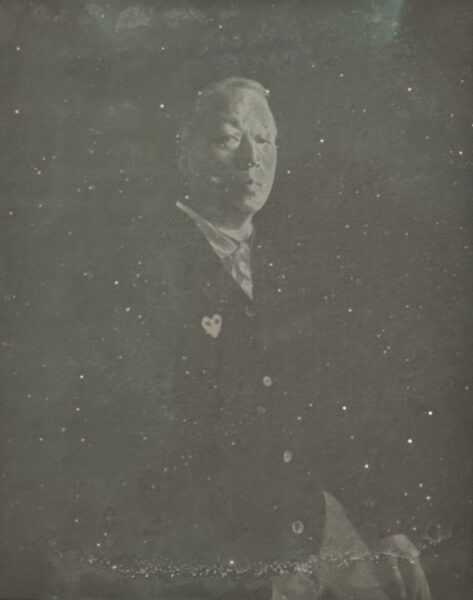
Hiroshi Sugimoto
The sculptor was not unknown to him. While he was studying philosophy as a young man at university in Japan he was well versed in the existentialist writings of Jean-Paul Sartre, who didn’t neglect to mention his artist friend in Montparnasse. It was therefore only natural for Françoise Cohen, director of the Institut Giacometti in Paris, to display the series at this small art nouveau townhouse across barely 23m2.
Noh theatre
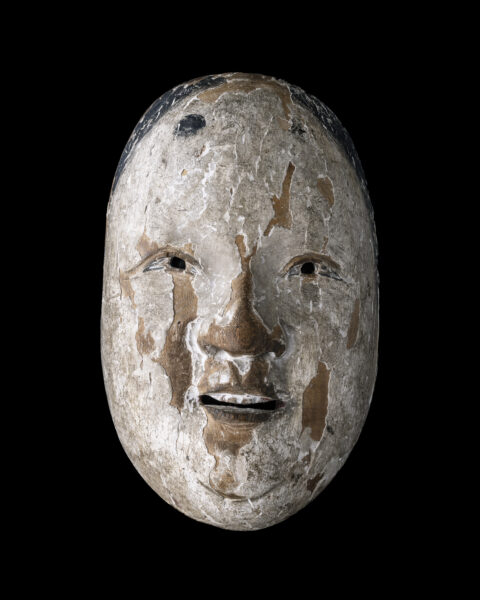
Noh Mask
If Sugimoto had simply exhibited his large-scale snapshots it would have been too straightforward. In the setting of this highly inhabited space he has used fantasy, as he often does, to reconstruct a scene from traditional Japanese Noh theatre. He has painted a stage curtain with a gold background using an old painting decorated with umbrella pines, which has already been used several times in some of his performances.
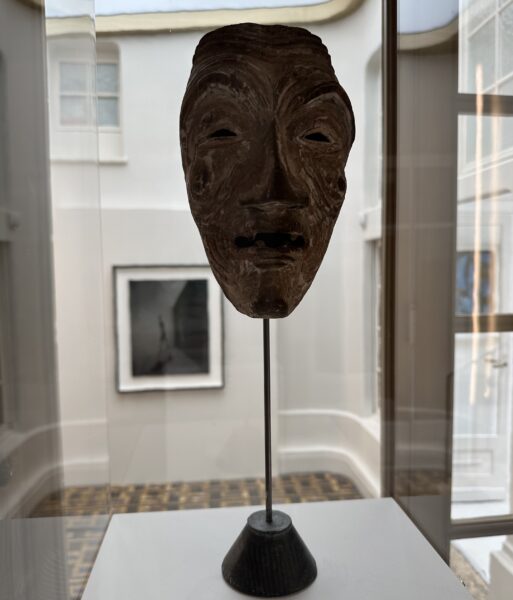
Noh Mask
Unhappy love story
He has then positioned the sculptures like actors ready to perform. Among them there is the “Grande Femme” identical to the one at Moma. Sugimoto imagines her to be the heroine of an unhappy love story together with the “Homme qui marche”, who walks towards her. He recounts it to us.
Isaku Yanaihara
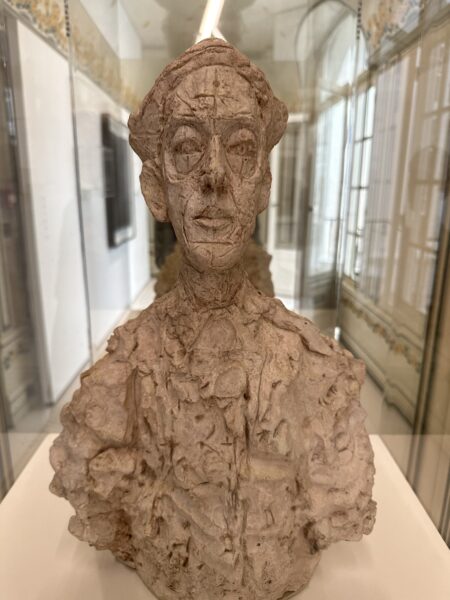
Alberto Giacometti
In one corner there is also the bust of one of Giacometti’s favourite models, Isaku Yanaihara. In the city Yanaihara was a philosopher and the first person to translate Sartre into Japanese. As chance would have it, his translations were the ones Sugimoto had read while he was a student.
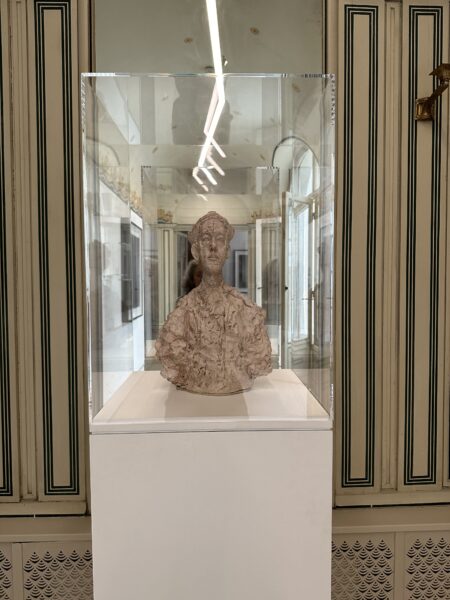
Alberto Giacometti
Montparnasse cemetery
And just on the other side of the street is Montparnasse cemetery where Jean-Paul Sartre is buried. The spirits are watching over. Sugimoto has also positioned Noh masks around the space dating from the 13th to the 15th centuries, taken from his collection “which seriously competes with Giacometti’s,” he adds jokingly.
Antique dealer
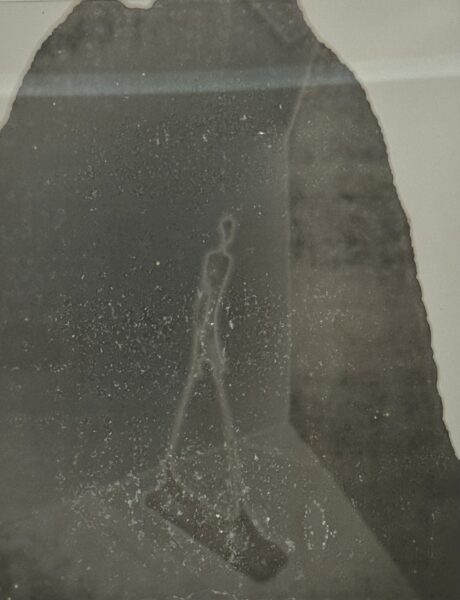
Hiroshi Sugimoto
As an aside, before he became known as an artist, for a while he was an antiques dealer when he first arrived in New York. Sugimoto has a relationship that is both visceral but also highly personal with Japanese culture.
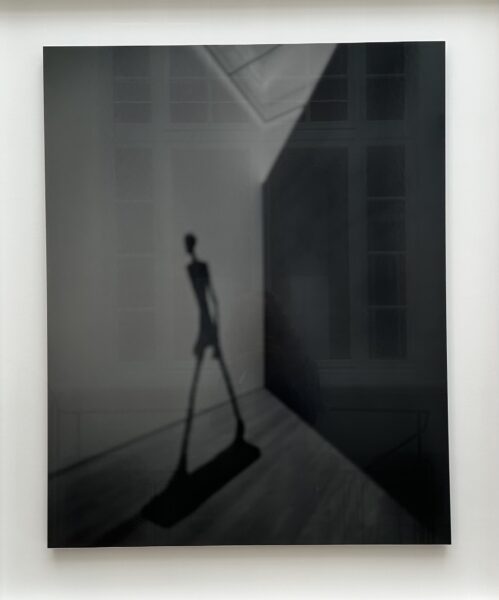
Hiroshi Sugimoto
My Japanese-ness
“Giacometti’s sculptures speak more and more to my Japanese-ness. I have read many things about him. He used to say he was trying to refine the spirit of his models.” This was quest in which the photographer clearly sees himself completely.
Singing on stage
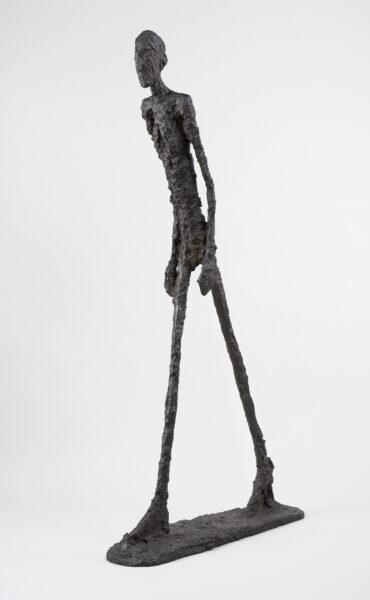
Alberto Giacometti
Just before leaving, he picks up the exhibition’s catalogue, opens the page at the picture of a Noh mask and holds the book up in front of his face. He gently removes his shoes, steps up onto the stage close to the protagonists of Giacometti’s universe, sitting quietly as though at an altar, places the the book over his face and begins to launch into a song we might imagine to be traditional. It’s an extraordinary moment from a consummate artist, who also likes to enjoy himself immensely.
Until 23 June. www.fondation-giacometti.fr/
Support independent news on art.
Your contribution : Make a monthly commitment to support JB Reports or a one off contribution as and when you feel like it. Choose the option that suits you best.
Need to cancel a recurring donation? Please go here.
The donation is considered to be a subscription for a fee set by the donor and for a duration also set by the donor.

